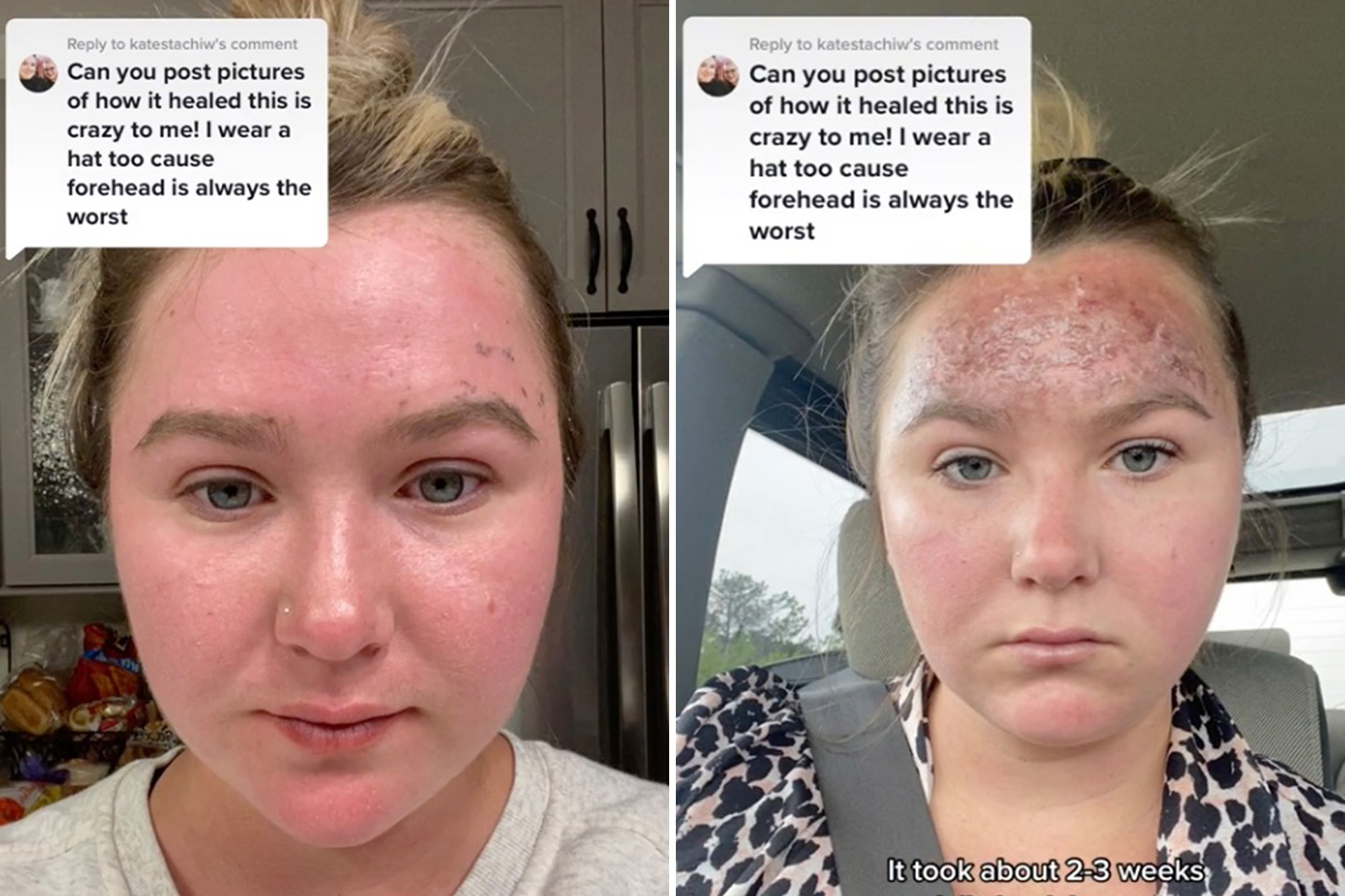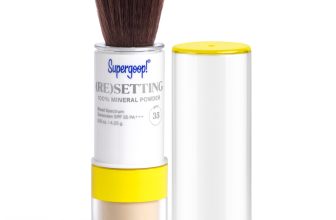Can You Use Expired Sunscreen

Expired sunscreen may be less effective and could potentially cause skin irritation or sunburn. It is generally not recommended for use.
Sunscreen is a vital tool in protecting our skin from harmful UV rays. However, it is important to be mindful of its shelf life. Using expired sunscreen can compromise its effectiveness, leaving your skin vulnerable to sun damage. Additionally, expired sunscreen may have an altered consistency or unpleasant smell, indicating that its active ingredients have degraded.
To ensure proper protection, it is advisable to check the expiration date on your sunscreen and replace it regularly. This simple practice can help safeguard your skin and maintain its health and vitality under the sun’s rays.

Risks Of Using Expired Sunscreen
When it comes to sun protection, using expired sunscreen can pose potential risks to your skin. It’s essential to understand the implications of using sunscreen past its expiration date, as it may not provide the level of protection you need. From reduced effectiveness to potential skin irritations, expired sunscreen can compromise your skin’s safety.
Reduced Effectiveness
Expired sunscreen may not offer the same level of protection as unexpired sunscreen. The active ingredients in the product degrade over time, leading to a reduction in its ability to shield your skin from harmful UV rays. Using expired sunscreen can leave you vulnerable to sunburn and long-term skin damage, as its protective properties diminish with time.
Potential Skin Irritations
When sunscreen expires, the formulation may undergo changes that can cause skin irritations. Expired sunscreen may contain ingredients that have broken down, leading to potential allergic reactions or irritation upon application. This can result in discomfort, redness, and other adverse skin reactions, negating the intended benefits of sunscreen.
How Sunscreen Expires
Sunscreen is an essential part of our daily skincare routine, protecting our skin from harmful UV rays. However, many of us tend to forget that sunscreen can expire, just like any other product. Over time, sunscreen loses its effectiveness, which is why it’s crucial to know when to replace it. In this post, we’ll explore how sunscreen expires, the ingredients breakdown, and changes in texture and smell.
Ingredients Breakdown
Sunscreen contains a combination of active and inactive ingredients that work together to protect our skin from UV radiation. The active ingredients in sunscreen include minerals like titanium dioxide and zinc oxide or chemicals like avobenzone and oxybenzone. On the other hand, the inactive ingredients include preservatives, emulsifiers, and fragrances.
Over time, the active ingredients in sunscreen break down and become less effective, reducing the product’s ability to protect your skin from the sun. On the other hand, the inactive ingredients can also break down, leading to changes in texture and smell.
Changes In Texture And Smell
As sunscreen expires, the texture and smell of the product change, making it less appealing to use. The texture may become grainy, lumpy, or separated, making it difficult to apply on the skin. Additionally, the smell may change, becoming rancid or unpleasant.
It’s essential to note that changes in texture and smell don’t necessarily mean that the sunscreen is expired, but it may indicate that the product is no longer effective. Hence, it’s crucial to follow the manufacturer’s guidelines on the shelf life of the product and replace it once it has expired.
Expired sunscreen can lead to sunburn, skin damage, and increase the risk of skin cancer. Therefore, it’s essential to check the expiration date before applying sunscreen and replace it once it’s expired.
Identifying Expired Sunscreen
Using expired sunscreen can be ineffective and may not provide the expected protection from UV rays. Check the expiration date on the bottle or tube, and look for any changes in color, texture, or smell. If it’s expired or shows signs of spoilage, it’s best to discard it and invest in a new one for proper skin protection.
Checking The Expiry Date
Look for the printed expiration date on the sunscreen packaging.
Verify the month and year to ensure it hasn’t passed.
Signs Of Degradation
Inspect the sunscreen for changes in color or consistency.
Check for a strange odor that wasn’t present before.
Avoid using sunscreen if it appears clumpy or separated.
Proper Storage To Extend Shelf Life
Properly storing your sunscreen is essential for extending its shelf life and ensuring its effectiveness. By following the right storage practices, you can maximize the longevity of your sunscreen and continue to protect your skin from harmful UV rays. Here are some key guidelines for storing your sunscreen properly:
Cool And Dry Places
Storing your sunscreen in a cool and dry place is crucial for maintaining its potency. Exposure to heat and moisture can degrade the ingredients in sunscreen, reducing its effectiveness. Choose a storage location that is away from direct sunlight and humidity, such as a cabinet or drawer in a cool, shaded area.
Avoiding Direct Sunlight
Direct sunlight can accelerate the degradation of sunscreen ingredients, compromising its ability to protect your skin. Keep your sunscreen in a shaded area away from windows or other sources of direct sunlight. Consider using a dark container or storing it in a beach bag with UV protection to shield it from the sun’s rays.
Safe Use Of Sunscreen
Applying The Right Amount
When applying sunscreen, it is crucial to use the right amount to ensure adequate protection. Squeeze a generous dollop, approximately a shot glass full, and apply it evenly to all exposed skin. Don’t skimp on application, as using too little can lead to inadequate coverage.
Reapplication Frequency
Reapplying sunscreen is essential for maintaining its effectiveness. Remember to reapply every two hours, or more frequently if swimming or sweating heavily. Even water-resistant sunscreens can lose their effectiveness over time, so be sure to reapply regularly.

Alternatives To Discarding Expired Sunscreen
Don’t rush to toss out expired sunscreen! There are eco-friendly alternatives to consider before disposal.
Recycling Options
When sunscreen reaches its expiration date, recycle the container if possible. Check with local recycling facilities for guidelines.
Creative Uses
Expired sunscreen can find new life in creative ways. Use it as a moisturizer for leather items like shoes or bags.
Understanding Spf Ratings
Understanding SPF ratings is crucial when it comes to choosing the right sunscreen that provides maximum protection. SPF, or Sun Protection Factor, is a measure of how well a sunscreen protects the skin from UVB rays. But can you use expired sunscreen?
Spf Scale Explained
The SPF scale ranges from 2 to 100, with the number indicating the level of protection the sunscreen provides against UVB radiation. The higher the SPF, the greater the level of protection. For instance, an SPF of 15 blocks 93% of UVB rays, while an SPF of 30 blocks 97% of UVB rays.
It’s important to note that SPF only measures protection against UVB rays, not UVA rays. UVA rays penetrate deeper into the skin and cause long-term skin damage, such as premature aging and skin cancer.
Choosing The Right Spf
Choosing the right SPF depends on various factors, such as skin type, time of day, and activity level. Here are some tips to help you choose the right SPF:
- Select an SPF of at least 30 for everyday use.
- If you have fair skin or are prone to sunburn, opt for an SPF of 50 or higher.
- If you plan to spend an extended time outdoors, reapply sunscreen every two hours or immediately after swimming or sweating.
- Choose a broad-spectrum sunscreen that protects against both UVA and UVB rays.
Expired sunscreen may not provide adequate protection against UVB and UVA rays, as the active ingredients may have degraded over time. It’s best to check the expiration date on the sunscreen bottle and replace it if it’s expired.
In conclusion, understanding SPF ratings is crucial in selecting the right sunscreen that provides maximum protection. Make sure to choose an appropriate SPF based on your skin type and activity level, and don’t forget to reapply sunscreen every two hours or after swimming or sweating. Always check the expiration date on sunscreen bottles and replace them if they’re expired.

Health Implications Of Sun Exposure
When spending time outdoors, exposure to the sun’s harmful rays can have severe consequences on your health. It’s important to understand the potential risks associated with sun exposure and the role sunscreen plays in protecting your skin.
Skin Cancer Risks
Prolonged exposure to the sun without adequate protection can significantly increase the risk of skin cancer. The damaging effects of UV radiation can lead to the development of melanoma and other forms of skin cancer.
Premature Aging
Excessive sun exposure can lead to premature aging of the skin, resulting in the formation of wrinkles, fine lines, and age spots. The loss of skin elasticity caused by UV radiation can accelerate the aging process.
Using expired sunscreen can compromise its effectiveness in shielding your skin from the sun’s harmful rays, exposing you to the aforementioned health risks. It’s crucial to prioritize the use of fresh, unexpired sunscreen to safeguard your skin from potential harm.
Frequently Asked Questions
What Happens When You Use Expired Sunscreen?
Using expired sunscreen may lead to reduced protection, skin irritation, and increased risk of sunburn or skin damage.
Is Expired Sunscreen Better Than Nothing?
Expired sunscreen is not effective. It’s better than nothing but offers less protection. Always use fresh sunscreen.
How Long Can You Use After The Expiration Date?
It is not recommended to use products after the expiration date for safety and effectiveness reasons.
Can Expired Sunscreen Cause A Rash?
Expired sunscreen can cause a rash due to ineffective ingredients. Check the expiration date before use.
Conclusion
Expired sunscreen may not provide adequate protection, risking sunburn and skin damage. It’s safer to discard and purchase fresh sunscreen for optimal sun protection. Your skin deserves the best care, so remember to check the expiration date of your sunscreen before use.
Stay safe under the sun!






